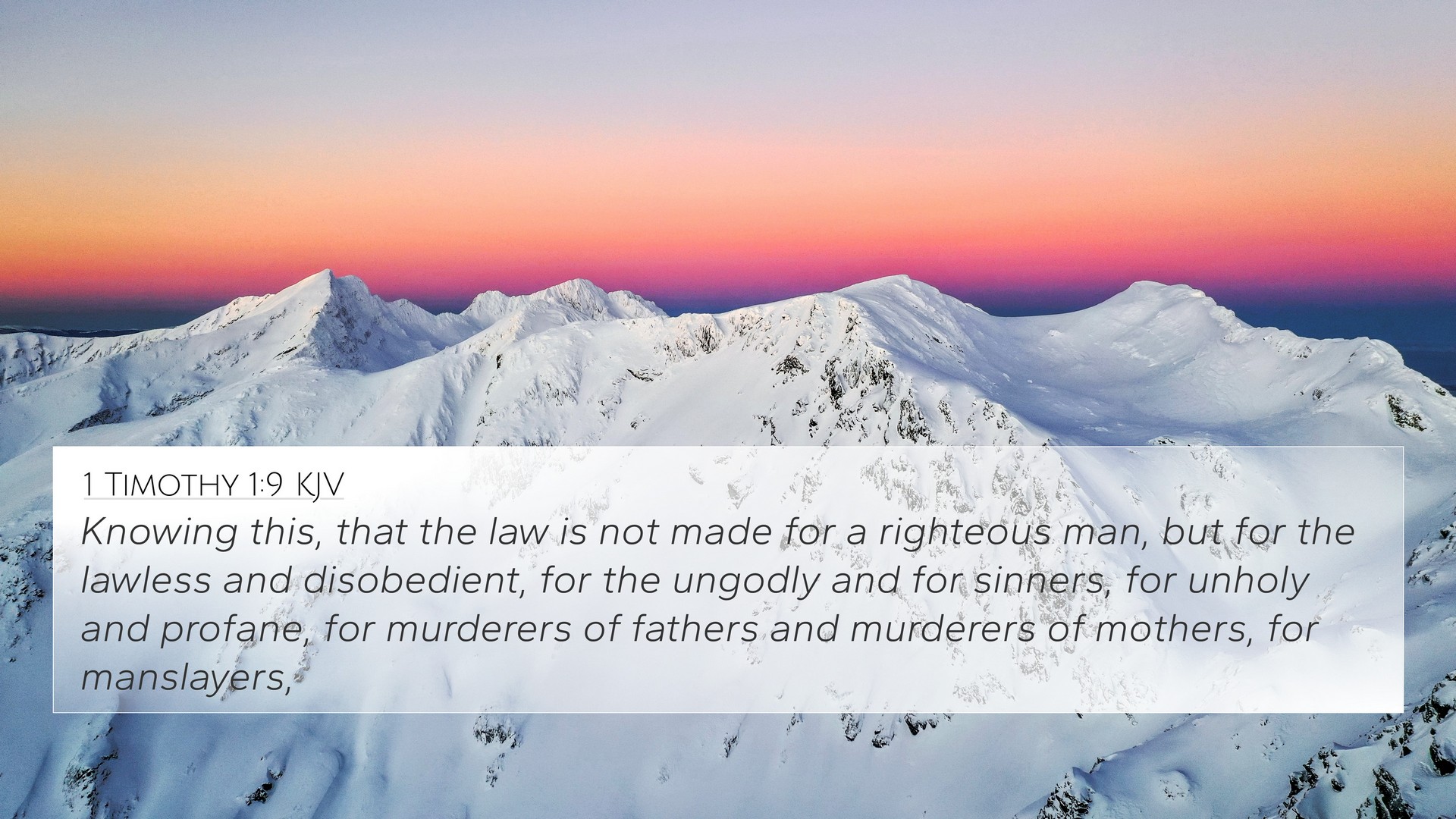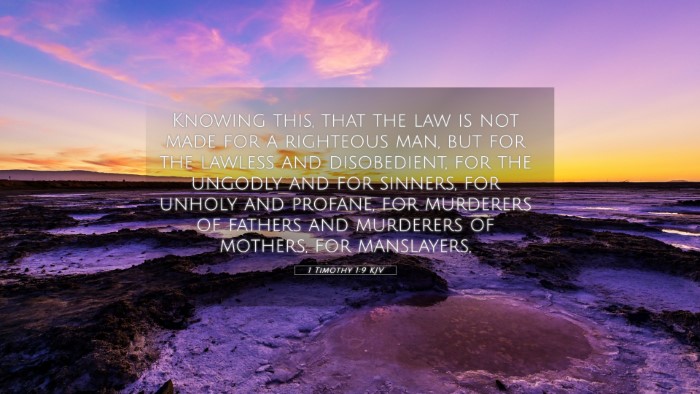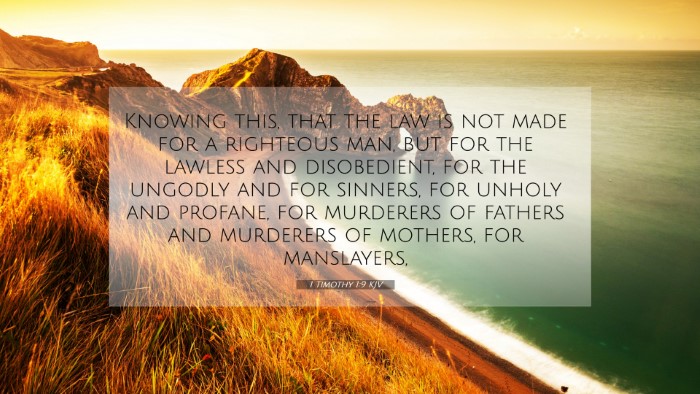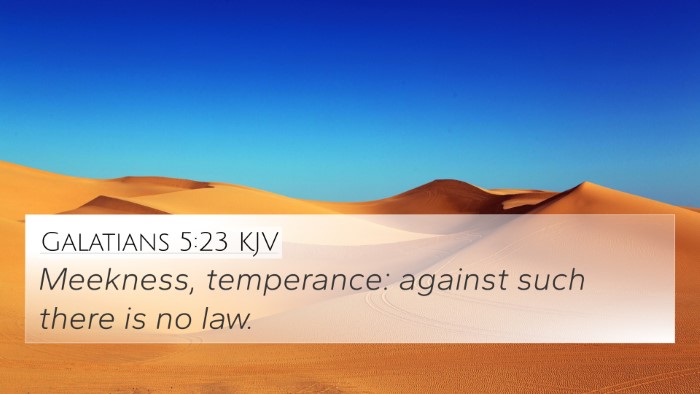Old Testament
Genesis Exodus Leviticus Numbers Deuteronomy Joshua Judges Ruth 1 Samuel 2 Samuel 1 Kings 2 Kings 1 Chronicles 2 Chronicles Ezra Nehemiah Esther Job Psalms Proverbs Ecclesiastes Song of Solomon Isaiah Jeremiah Lamentations Ezekiel Daniel Hosea Joel Amos Obadiah Jonah Micah Nahum Habakkuk Zephaniah Haggai Zechariah Malachi1 Timothy 1:9 Similar Verses
1 Timothy 1:9 Cross References
Knowing this, that the law is not made for a righteous man, but for the lawless and disobedient, for the ungodly and for sinners, for unholy and profane, for murderers of fathers and murderers of mothers, for manslayers,
Uncover the Rich Themes and Topics of This Bible Verse
Listed below are the Bible themes associated with 1 Timothy 1:9. We invite you to explore each theme to gain deeper insights into the Scriptures.
1 Timothy 1:9 Cross Reference Verses
This section features a detailed cross-reference designed to enrich your understanding of the Scriptures. Below, you will find carefully selected verses that echo the themes and teachings related to 1 Timothy 1:9 KJV. Click on any image to explore detailed analyses of related Bible verses and uncover deeper theological insights.

1 Peter 4:18 (KJV) »
And if the righteous scarcely be saved, where shall the ungodly and the sinner appear?
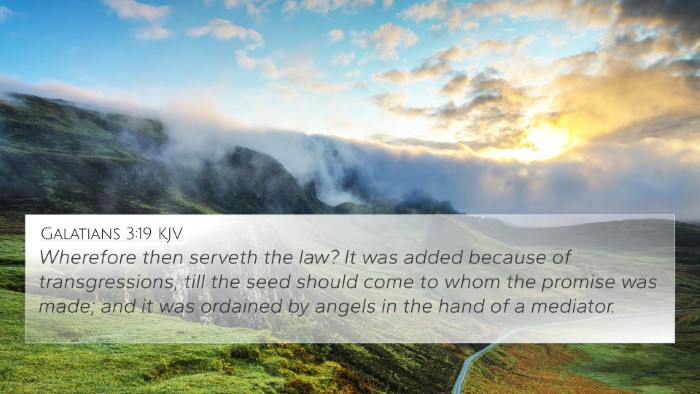
Galatians 3:19 (KJV) »
Wherefore then serveth the law? It was added because of transgressions, till the seed should come to whom the promise was made; and it was ordained by angels in the hand of a mediator.
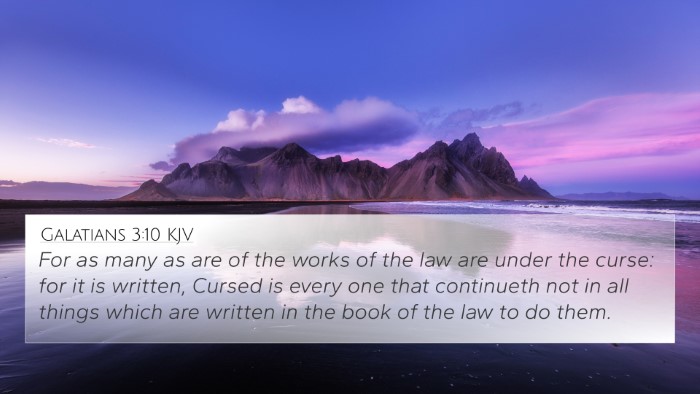
Galatians 3:10 (KJV) »
For as many as are of the works of the law are under the curse: for it is written, Cursed is every one that continueth not in all things which are written in the book of the law to do them.
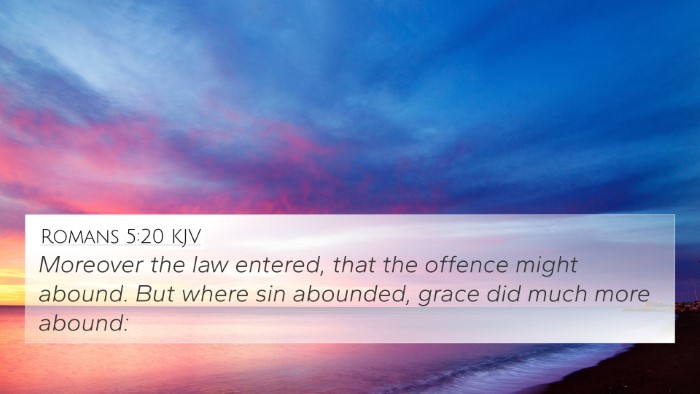
Romans 5:20 (KJV) »
Moreover the law entered, that the offence might abound. But where sin abounded, grace did much more abound:
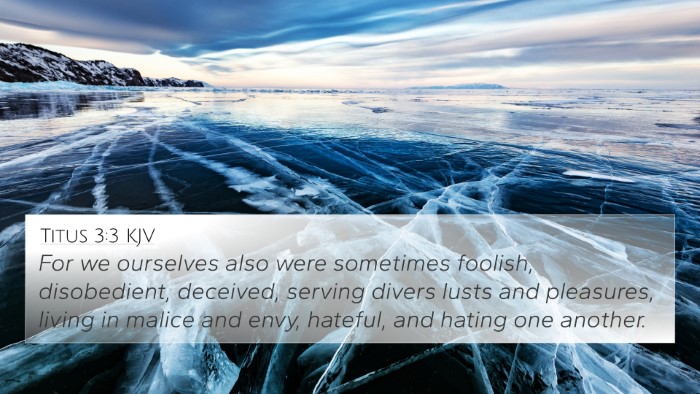
Titus 3:3 (KJV) »
For we ourselves also were sometimes foolish, disobedient, deceived, serving divers lusts and pleasures, living in malice and envy, hateful, and hating one another.
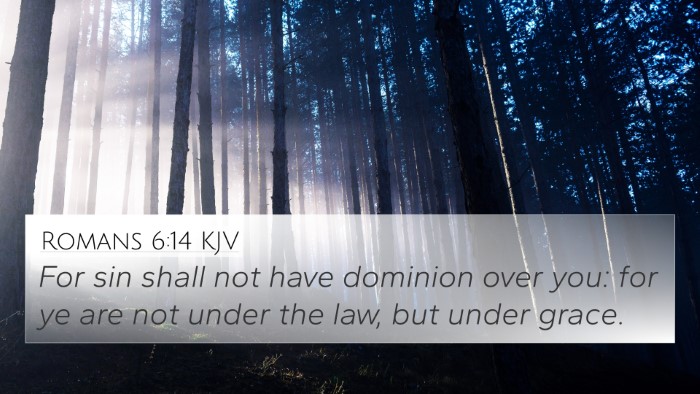
Romans 6:14 (KJV) »
For sin shall not have dominion over you: for ye are not under the law, but under grace.
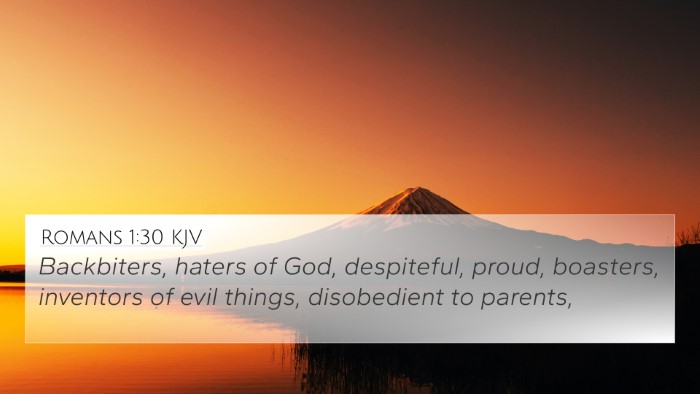
Romans 1:30 (KJV) »
Backbiters, haters of God, despiteful, proud, boasters, inventors of evil things, disobedient to parents,

Genesis 9:5 (KJV) »
And surely your blood of your lives will I require; at the hand of every beast will I require it, and at the hand of man; at the hand of every man's brother will I require the life of man.
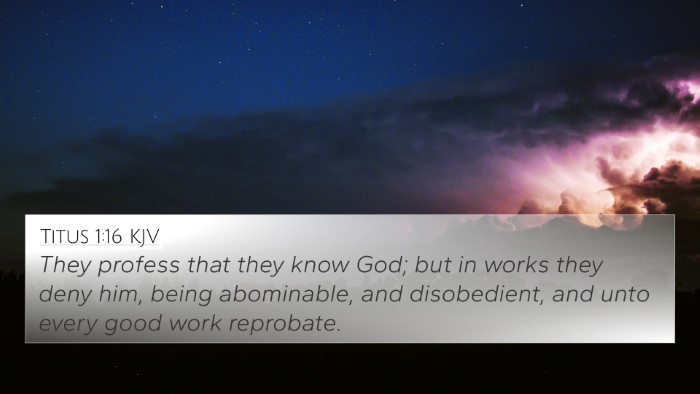
Titus 1:16 (KJV) »
They profess that they know God; but in works they deny him, being abominable, and disobedient, and unto every good work reprobate.
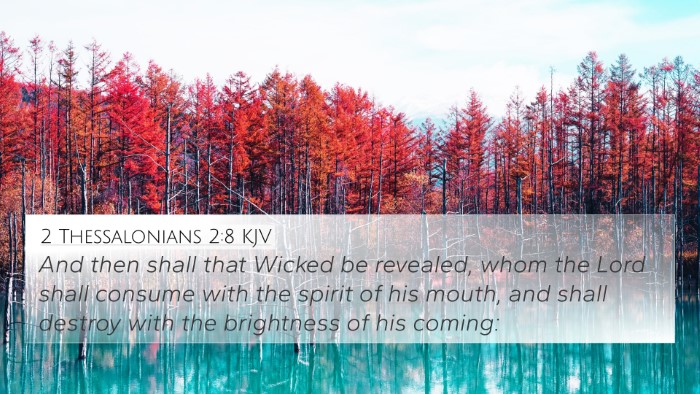
2 Thessalonians 2:8 (KJV) »
And then shall that Wicked be revealed, whom the Lord shall consume with the spirit of his mouth, and shall destroy with the brightness of his coming:

Hebrews 11:31 (KJV) »
By faith the harlot Rahab perished not with them that believed not, when she had received the spies with peace.

Romans 4:13 (KJV) »
For the promise, that he should be the heir of the world, was not to Abraham, or to his seed, through the law, but through the righteousness of faith.
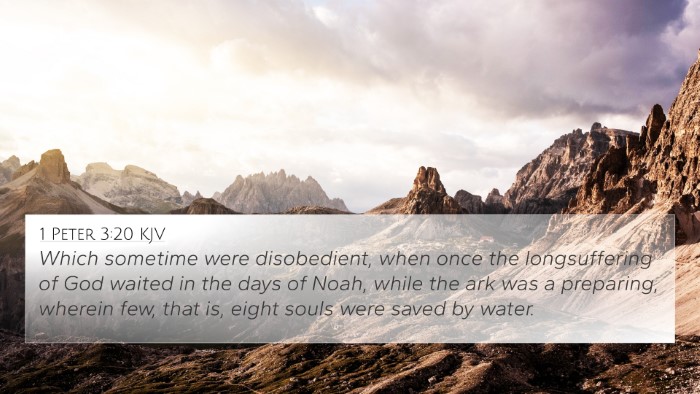
1 Peter 3:20 (KJV) »
Which sometime were disobedient, when once the longsuffering of God waited in the days of Noah, while the ark was a preparing, wherein few, that is, eight souls were saved by water.

Revelation 22:15 (KJV) »
For without are dogs, and sorcerers, and whoremongers, and murderers, and idolaters, and whosoever loveth and maketh a lie.
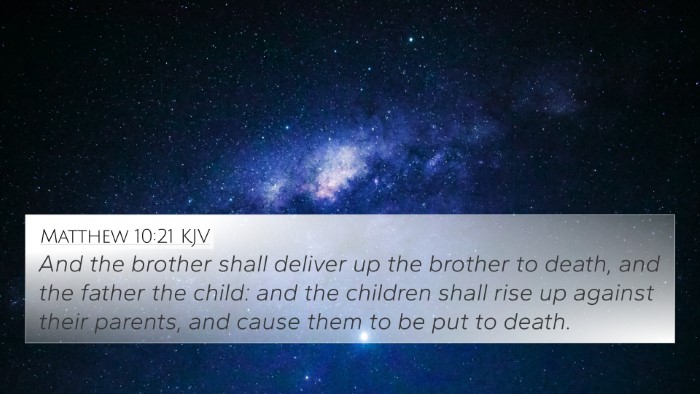
Matthew 10:21 (KJV) »
And the brother shall deliver up the brother to death, and the father the child: and the children shall rise up against their parents, and cause them to be put to death.

Ezekiel 21:25 (KJV) »
And thou, profane wicked prince of Israel, whose day is come, when iniquity shall have an end,
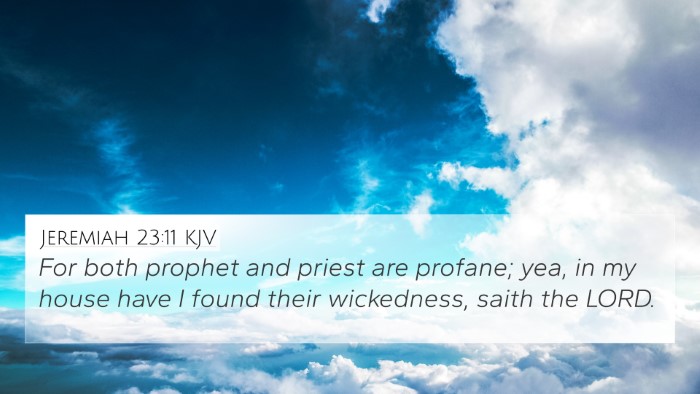
Jeremiah 23:11 (KJV) »
For both prophet and priest are profane; yea, in my house have I found their wickedness, saith the LORD.
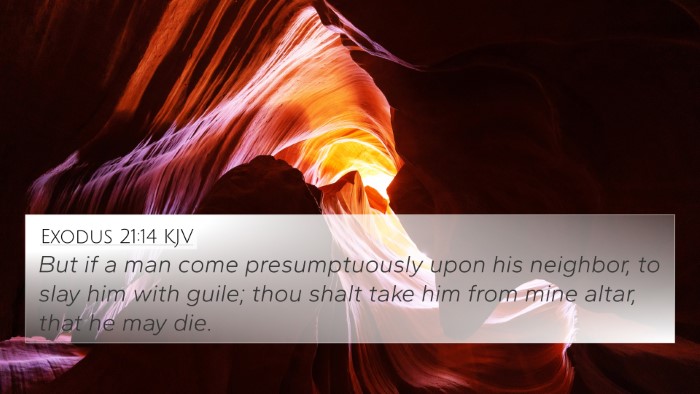
Exodus 21:14 (KJV) »
But if a man come presumptuously upon his neighbor, to slay him with guile; thou shalt take him from mine altar, that he may die.
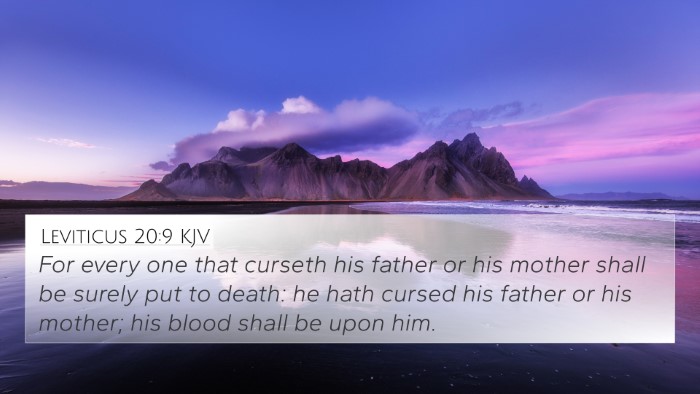
Leviticus 20:9 (KJV) »
For every one that curseth his father or his mother shall be surely put to death: he hath cursed his father or his mother; his blood shall be upon him.
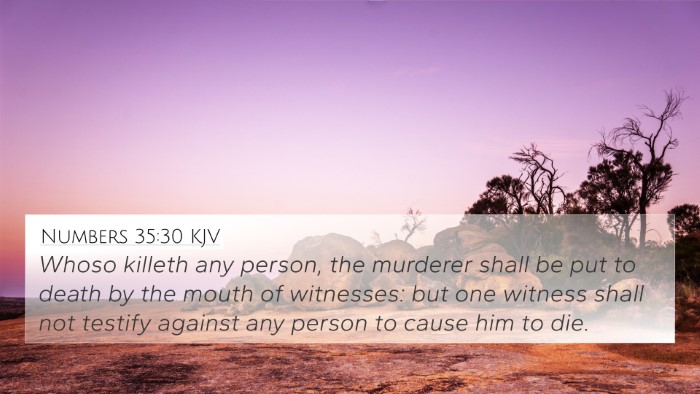
Numbers 35:30 (KJV) »
Whoso killeth any person, the murderer shall be put to death by the mouth of witnesses: but one witness shall not testify against any person to cause him to die.
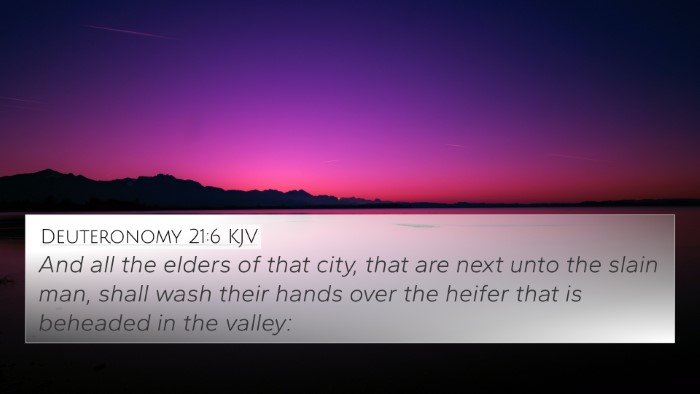
Deuteronomy 21:6 (KJV) »
And all the elders of that city, that are next unto the slain man, shall wash their hands over the heifer that is beheaded in the valley:
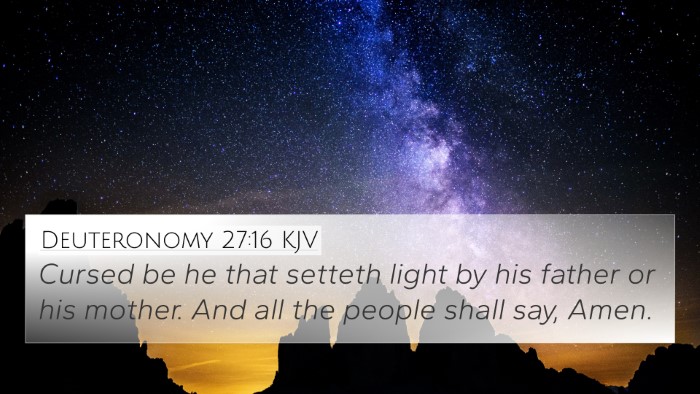
Deuteronomy 27:16 (KJV) »
Cursed be he that setteth light by his father or his mother. And all the people shall say, Amen.
1 Timothy 1:9 Verse Analysis and Similar Verses
Understanding 1 Timothy 1:9
1 Timothy 1:9 states: "Knowing this, that the law is not made for a righteous man, but for the lawless and disobedient, for the ungodly and for sinners, for unholy and profane, for murderers of fathers and murderers of mothers, for manslayers." This powerful verse from the Apostle Paul provides a deep insight into the purpose of the Law and its intended audience.
Summary of Meaning
In this verse, Paul emphasizes that the Law was not given to the righteous but is necessary for the lawless and disobedient. The Law serves as a guide to expose sin and disorder, reflecting God's holiness compared to human unworthiness.
Commentary Insights
- Matthew Henry: Henry explains that the Law is designed to reveal sin and restrain evil. It acts as a mirror which shows believers their failings and continually reminds them of their need for grace rather than works.
- Albert Barnes: Barnes expands on the idea that the law identifies transgression and applies to those outside of God’s covenant. It showcases God's justice, establishing a need for redemption, hence serving as a precursor to the grace offered through Christ.
- Adam Clarke: Clarke underlines the notion of the righteousness of the Law and its divine origin. He suggests that the Law's sternness is only necessary because of humanity's sinful nature, with its aim to push individuals toward repentance.
Key Themes Derived from 1 Timothy 1:9
This verse brings several themes to light:
- Purpose of the Law
- Identification of Sin
- God's Holiness vs. Human Sinfulness
- Need for Redemption
- The Role of Grace
Bible Verse Cross-References
To better understand the connections of 1 Timothy 1:9 with other scripture, consider the following references:
- Romans 3:20: "Therefore no one will be declared righteous in his sight by the works of the law; rather, through the law we become conscious of our sin."
- Galatians 3:24: "So the law was our guardian until Christ came that we might be justified by faith."
- 2 Corinthians 5:21: "God made him who had no sin to be sin for us, so that in him we might become the righteousness of God."
- Hebrews 10:1: "The law is only a shadow of the good things that are coming—not the realities themselves."
- 1 John 3:4: "Everyone who sins breaks the law; in fact, sin is lawlessness."
- Matthew 5:17: "Do not think that I have come to abolish the Law or the Prophets; I have not come to abolish them but to fulfill them."
- Romans 7:7: "What shall we say, then? Is the law sinful? Certainly not! Nevertheless, I would not have known what sin was had it not been for the law."
Connections Between Bible Verses
Thematic discussions around 1 Timothy 1:9 connect it broadly with other verses that address the nature of sin, repentance, and the role of the law in revealing God's will:
- The connections to the moral and civil applications of the Law are explored in books such as Exodus and Deuteronomy where God's commandments are first outlined.
- In the New Testament, the teachings of Jesus often reference law and righteousness as illuminated in the Gospels, presenting a continuous dialogue between Old and New Testament concepts.
- The Apostle Paul’s emphasis on grace through faith in Christ ties back to the restrictions and purposes of the Law, depicting a progressive revelation of God’s redemptive plan.
Conclusion
1 Timothy 1:9 serves as a reminder of humanity's need for law to recognize sin, revealing the necessity for grace through faith in Jesus Christ. Its layered meaning invites deeper exploration of the relationship between law and grace across the entirety of scripture.
